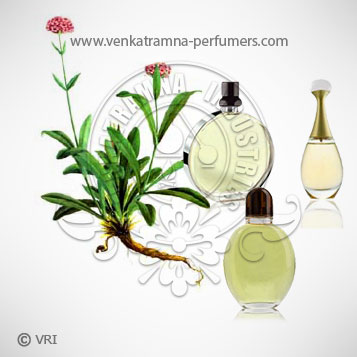
| Botanical Name | Nardostachys jatamansi |
| Common Name | Nardostachys Jatamansi |
| Country of Origin | India |
| Solubility | Insoluble in water, soluble in alcohol and oils |
| Specific Gravity | 0.9300 – 0.9587 @ 25 C |
| Optical Rotation | -12.0 – -8.0 @ 20°C |
| Refrective Index | 1.5055 – 1.5458 @ 25 C |
| PlantPart | Root |
| Bland With | Clary sage, lavender, lemon, neroli, patchouli and vetiver. |
| CAS No | 8022-22-8 |
| Flash Point | 85° C |
| Extraction Method | Steam Distilled |
The Spikenard oil offered by us is extracted from Nardostachys jatamansi of the Valerianaceae family and is popularly known as the "false" Indian valerian root. Its strong medicinal properties make it a necessary ingredient in many types of medicine. It is available in market in different forms like oil, powder. It contains various chemical constituents - ursolie acid, acacin, kanshone A, octacosanol, nardosinone, nardosinonediol, aristolen-9beta-ol, oleanolic acid, and beta-sitosterol. It also contains nardal, jatamansic acid, jatamol A &B, spirojatamol, terpenoid, neolignans, taraxerone, valeranone, chlorogenic acid, ferulic acid, syringic acid and photocatechuic acid.
A sacred healing herb of old - Spikenard was considered precious even in Biblical times, when Mary Magdalene used it to anoint Jesus' feet at the last supper. No wonder it was precious, coming all the way from the foothills of the Himalayas, which in biblical times might as well have been somewhere near the gates to the Garden of Eden. Its Hindu name 'Jatamansi' means 'lock of hair' in allusion to the hairy rhizome, which is the source of the essential oil. Spikenard is a member of the Valerian family and in Ayurveda it is used similarly to Valerian in western herbalism. Throughout Asia, Spikenard is highly valued as an incense ingredient. In the West it is still shrouded in mystery and just as precious as it was in biblical times, though not on account of its distant origins. Sadly, its preciousness today is related to its rarity, which stems from the fact that it is being over-harvested in the wild. Luckily some cultivated sources are becoming available, so maybe this ancient sacred herb may have a chance to survive in the wild.
Color : pale yellow in color with warm, misty, heavy aroma,
Aroma : Spikenard Essential Oil has an earthy, harsh wood like smell that is slightly musty.
bornyl acetate, valeranone, jonon, tetramenthyloxatricylodecanol, menthylthymyl-ether and 1,8-cineol.
Spikenard oil is widely used in the field of medicine. It is an effective cure against the ills of migraine, weak nervous system, tension, stress, indigestion and insomnia. The plant has a rich history of medicinal use and has been valued for centuries in Ayurvedic (Indian) and Unani (ancient Greco-Arab) systems of medicine. The rhizomes of the plant are used in the Ayurvedic system of medicine as a bitter tonic, stimulant, antispasmodic, and to treat hysteria, convulsions, and epilepsy. The root has been medically used to treat insomnia and blood, circulatory, and mental disorders. Some preparations of the plant have been used as a heptotonic, cardiotonic, analgesic, and diuretic in the Unani system of medicine. The plant is of economic importance and has been used to produce perfumes and dyes.